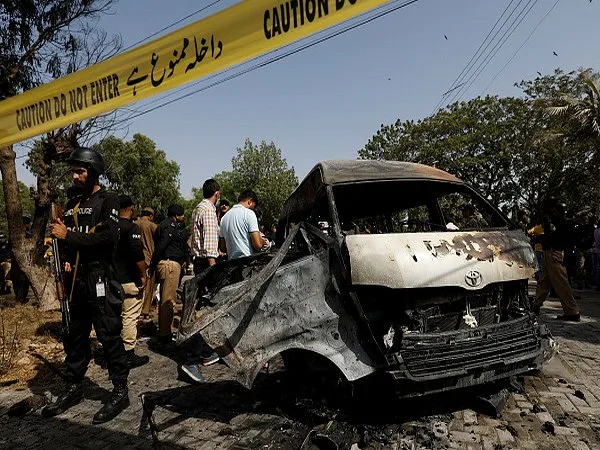While most terrorist attacks in Pakistan are carried out by religious groups based in Afghanistan, Baloch militancy is also on the rise. Baloch militants carried out a suicide bombing on a van carrying Chinese academics near the Confucius Institute in Karachi University the previous day, Pak media reported.
The media reports also stated that in 2018, Karachi police foiled an attack by insurgents of the outlawed Balochistan Liberation Army on the Chinese consulate. Another attack, also claimed by the BLA, was similarly stymied in 2020 at the Pakistan Stock Exchange where the Chinese have major investments.
Both the attacks indicated that the militants’ strategy was evolving as the attackers appeared ready to adopt fidayeen tactics. However, with the deployment of a woman suicide bomber, the BLA attack on the university premises has added yet another dimension.
It was from the terrorists’ point of view a far more effective attack than the previous two had been, as it killed at least three Chinese nationals and came as a shocker for both China and Pakistan.
Shari Baloch, who joined Baloch Liberation Army (BLA) two years ago volunteered herself for a “self-sacrificing mission” and targeted the Chinese to take revenge against Baloch genocide, occupation of Balochistan by Pakistan and now China’s growing investment and interference in the region.
Balochistan has long demanded independence from Pakistan, and the multi-billion-dollar China-initiated One Belt One Road (OBOR) Project has further inflamed passions. The Baloch, who are opposing the China-Pakistan Economic Corridor as part of OBOR, are facing oppression and genocide by the Pakistan Army.
There are uncounted incidents of enforced disappearances and killings of Baloch political activists, intellectuals and students by the Pakistani security forces and secret agencies.
For years, the Baloch insurgency had been regarded as a low-intensity conflict. But this is no longer the case. The attacks are growing more audacious — as seen earlier this year when 10 soldiers lost their lives in an attack on an FC post in Kech.
Meanwhile, disparate Baloch militant groups are coming together in a bid to restructure the insurgency and beef up their numbers and fine-tune their tactics.
While issues such as the underdevelopment of Balochistan, the Baloch missing persons, and the military footprint stamped on large parts of the province as the nexus between poverty and violence runs deep.
But that should not stop the mainstream Baloch nationalist parties from coming forward to roundly condemn such attacks, even as they continue to put pressure on the centre to ensure Balochistan’s welfare.
The Balochistan Liberation Army claimed responsibility for the recent suicide attack that killed 3 Chinese teachers and was carried out outside the University of Karachi’s (KU) Confucius Institute.
The Karachi suicide bombing is part of an intensifying Baloch pushback against the 54 billion USD China Pakistan Economic Corridor (CPEC). It also spotlights the larger and deeper struggle for Balochistan’s freedom, Dawn reported.

